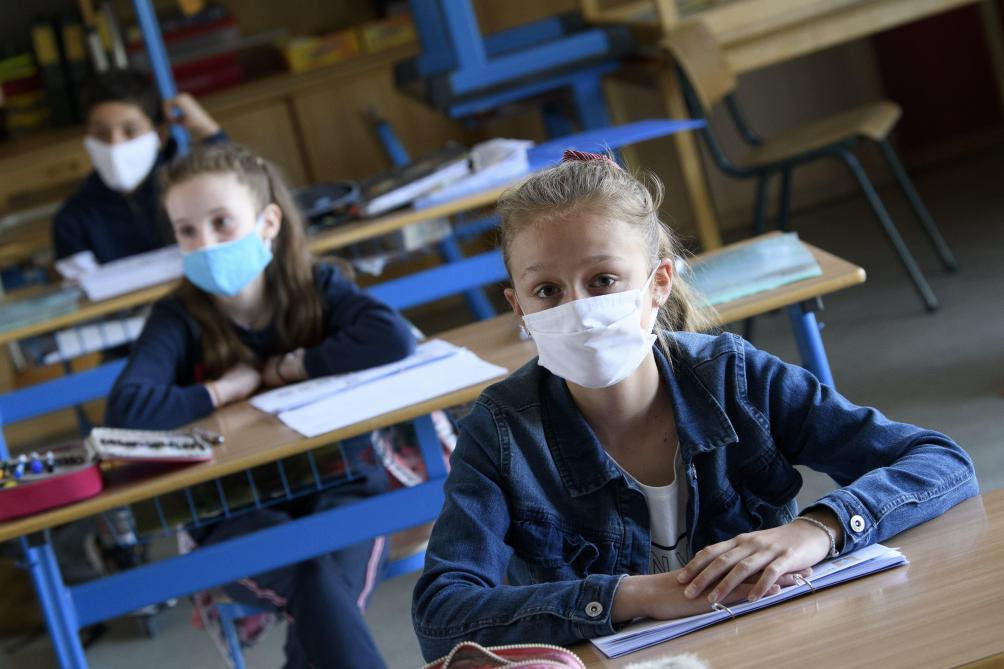The Brussels Regional crisis cell decided against implementing new measures on Monday, but agreed that all primary and secondary schools in the region will remain in code yellow, despite the rising coronavirus figures.
The situation in the schools in Brussels is "not alarming" and remains "similar to what we are seeing elsewhere in the country," the cabinet of Brussels Minister-President Rudi Vervoort said, adding that code yellow -the second-lowest risk level in a nationally defined coronavirus risk system - will continue to apply in schools and higher education institutions.
The meeting brought together the mayors of the 19 Brussels communes met with the chief of the six police zones, the High Officer for Prevention and Security, the Health Inspectorate and Vervoort's cabinet.
Despite several schools in Brussels already imposing a quarantine on teachers and/or pupils because of infections this month, as well as Sciensano's most recent figures showing that teenagers now make up the biggest group among the new infections, the rules will not be tightened for now.
Related News
- Teenagers make up biggest group of new Covid-19 infections in Belgium
- Brussels primary school sends all teachers into quarantine
- Three Brussels schools trigger quarantines after positive Covid-19 cases
The VUB (Free University of Brussels) starts in code yellow this week but will switch to code orange next week, and the Erasmus University College also starts in code orange, against the wishes of Flemish Education Minister Ben Weyts.
The highest number of new infections are still being recorded in the Brussels-Capital Region, health officials said during a Crisis Centre press conference on Monday morning, with current weekly averages in Brussels now twice as high as during the previous rise in figures in August.
"The decision not to impose new measures is also dictated by the fact that the National Security Council is meeting on Wednesday, and will possibly decide on new measures for the whole of Belgium," they said.
The day after the National Security Council, however, a meeting will be held with representatives of the higher education institutions and the mayors, as well as consultations with the education authorities and the relevant cabinets.
Maïthé Chini
The Brussels Times

